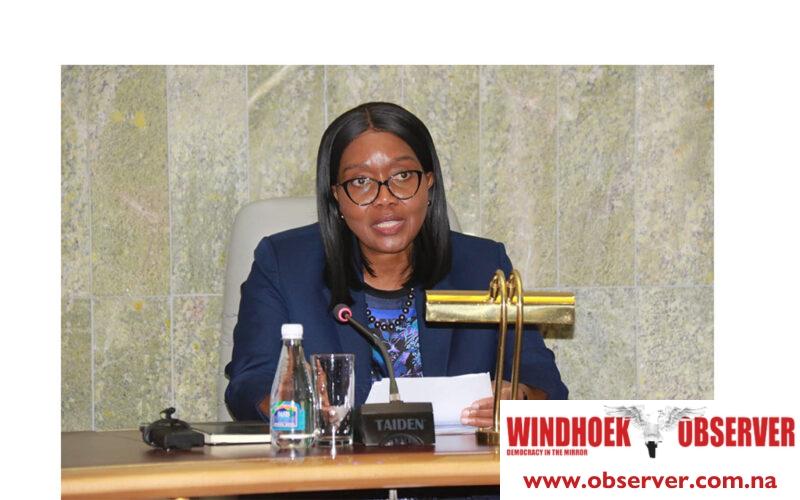Martin Endjala
Namibia has relatively low levels of corruption, according to Prime Minister Saara Kuugongelwa-Amadhila.
She made the remarks on Wednesday during the National Anti-Corruption Strategy and Action Plan (NACSAP) 2021-2025 Steering Committee meeting in Windhoek.
“Since independence, the Namibian government has made significant strides in strengthening measures to combat corruption and promote effective governance. The government has achieved this progress by improving processes, systems, and institutions, she said.
The country performed similarly in the 2022 Transparency International Corruption Perception Index, ranking 8th out of 54 African nations.
In the 2023 Corruption Perceptions Index by Transparency International, Namibia ranked 59th out of 180 countries, placing 4th in the Southern African Development Community (SADC), with a score of 49 out of 100.
Kuugongelwa-Amadhila said Namibia remains committed to fighting corruption in all spheres of society.
“Let us move forward together to create a corruption-free Namibia where justice, fairness, and integrity prevail. Together, we can make a difference,” she urged.
She called on civil society leaders and representatives from the private and public sectors to unite and remain dedicated in their efforts to ensure that the country becomes a model of integrity and transparency in the region and beyond.
The Anti-Corruption Commission (ACC) director-general, Paulus Noa, called the implementation of anti-corruption programs not merely because of the ratified global legal instruments.
“Mainly because it is the right thing to do to grow the economy and improve the livelihoods of all citizens,” he said.
Namibia is a signatory to several global organisations.
He said the ACC is working on amending the Anti-Corruption Act to review certain definitions and criminalize specific conduct by heads of institutions and supervisors.
Noa also disclosed that ACC will be able to instruct public bodies on the necessary practices and procedures to prevent or eliminate corrupt practices through the addition of new provisions to the law.
“Corruption is destructive to effective governance and service delivery. It retards economic growth and prosperity, creates a sense of mistrust and disunity, and exacerbates poverty and social instability,” Noa said.
Namibia is currently reviewing a proposal from Nigeria to train local officers involved in anti-corruption activities.




